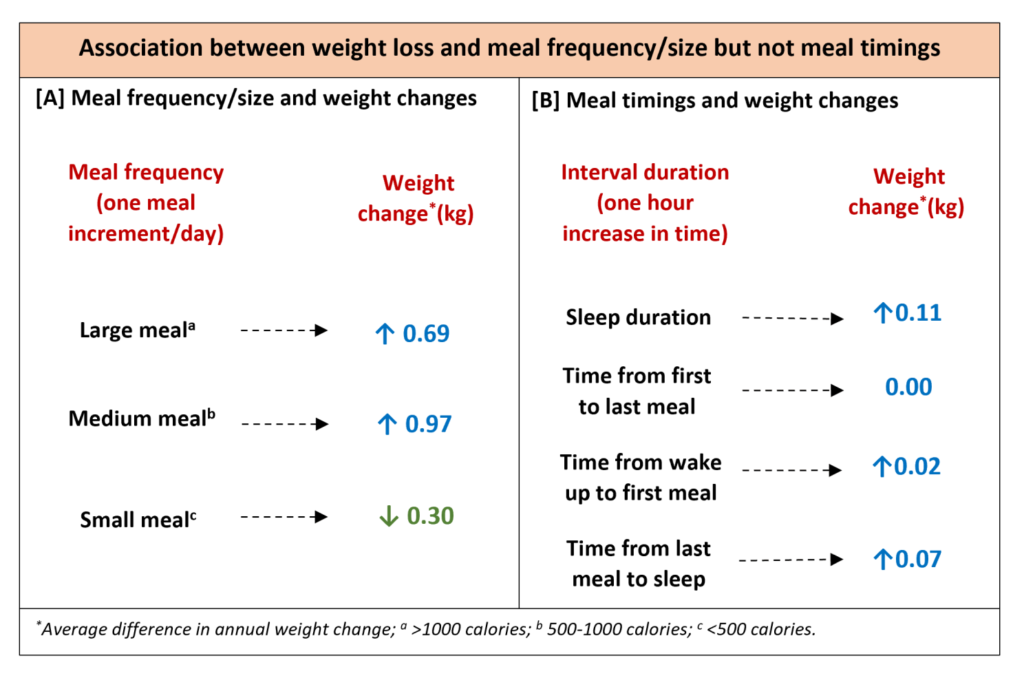
An effective way to reduce weight is to reduce the size and frequency of meals rather than intermittent fasting, as per the results of a new study published in the Journal of the American Heart Association. Limiting the frequency of large-sized and medium-sized meals is more beneficial than restricting the eating windows. Additionally, it was observed that the timing of first to last meal, wake up to first meal, last meal to sleep, and the total sleep duration were not associated with any significant weight change over time.
A prospective cohort study recruited adult participants (n = 547; age ≥18 years) from 3 health systems, to examine the association of timing and frequency of meals with weight loss. The participants recorded sleeping duration (sleeping time and waking-up time) and eating patterns (mealtime and meal size), for each 24-hour window in real-time using a mobile application. The average follow-up time for weight recorded in the electronic health record was 6.3 years. The average duration from the first to the last meal, from waking up to the first meal, and from the last meal to sleep for each participant was calculated. The results are summarized below:
- Over the 6-year follow-up period, consuming fewer small meals everyday resulted in weight loss, while large and medium meals were associated with increased weight in the participants (see part [A] in the graphic below).
- There was no association of meal timing and sleep duration with weight changes over the follow-up period among the participants (see part [B] in the graphic below).

Clinical implication:
- This study provided robust evidence in support of limiting calorie intake in portion and frequency as an effective strategy in the prevention of weight changes over longer period of time.
- Consuming food early in the evening (longer duration from the last meal to sleep) and early after waking up resulted in lesser weight gain, indicating the importance of consuming energy early in the day for better weight control.
- Counselling patients on limiting the frequency of large meals than restricting eating windows might be more beneficial in the prevention of weight gain.
(Reference: Zhao D, Guallar E, Woolf TB, Martin L, Lehmann H, Coughlin J, Holzhauer K, Goheer AA, McTigue KM, Lent MR, Hawkins M, Clark JM, Bennett WL. Association of eating and sleeping intervals with weight change over time: The Daily24 cohort. J Am Heart Assoc. 2023;12(3):e026484. Doi: 10.1161/JAHA.122.026484)
